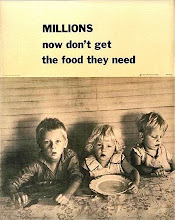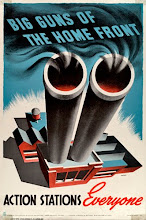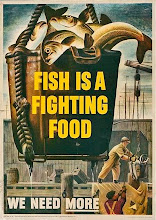"The Menagerie" was the only two-part episode in the original Star Trek series. Part I premiered November 17, 1966 with Part II broadcast on November 24, 1966. The Menagerie featured the wheel chair bound Captain Pike, a formerly robust man who can be restored to his former self only by the inhabitants of Talos IV, a quarantined planet. Spock risks his career getting Pike to Talos IV and in the end, after meeting a woman who shares his fate, Pike is restored to health. Talos IV becomes his prison, the price paid for absence of any other cure.
The Menagerie was first broadcast 44 years ago. Lyndon Johnson was President and the Voting rights Act was a recent event. Two generations later, The Menagerie stands as another metaphor for medical failure. While science has made great strides in combating cancer, chronic respiratory disease has yet to find a cure.
Asthma kills 7,000 people per year in the US and the related death toll is likely far greater, for example, asthma-related cardiac arrest. Emphysema, a degenerative and invariably terminal lung disease, has been re-branded as one of two diseases under the clinical and somewhat innocuous-sounding Chronic Obstructive Pulmonary Disease or COPD. The other is chronic bronchitis.
If there ever was a hard and fast line between asthma and COPD, it's gone. Science only defines a gray area in which some asthma patients develop COPD. Medications developed for COPD are prescribed to some asthma patients. At least two respiratory medications are known to cause osteoporosis.
Breast cancer has received an enormous amount of PR attention and funding. Rightly so. Breast cancer is a devastating disease. Time and money have brought breast cancer treatment to the point where early detection comes close to guaranteeing a cure. Why has respiratory disease lagged so far behind? Lung cancer is strongly associated with smoking and one could argue it acquired a "they did it to themselves" stigma. Yet 20% of lung cancer victims never used tobacco.
2010 has seen an epic level of allergy distress. Whatever your history with allergic reaction, 2010 was worse by far. There is a simple reason why pollen counts are climbing: climate change is both increasing ambient temperatures and lengthening the growing season. According to a study of pollen levels in Greece, "On average, the atmospheric pollen concentration is doubling every decade, but for some species the rate is much higher, with doubling times less than 5 years." (abstract here) Since climate change is relentless, those who suffer allergies and respiratory illness to a disabling degree will only get worse. Some are entering into a period where nature's organic response to climate change is becoming life-threatening.
COPD is diagnosed after a patient loses 30% of their lung capacity. This is akin physicians saying "..we don't know when or how asthma becomes COPD, so we'll wait until one-third of your lungs are gone before officially declaring a terminal problem.." The only practical, near-term solution for such people does not differ from the one option available to 19th century tuberculosis patients: flee to the desert.
Captain Pike found his fictional happy ending on Talos IV. Some people must make their own happy ending in places like Tucson, Albuquerque, Fort Collins or Phoenix, or suffer a miserable end where they are. Imagine a slow, painful death by suffocation, as your prescribed medications lose efficacy and your bones rot. Long before you're dead, you will be disabled, unemployed and uninsured.
There is strong historic precedent suggesting that climate change will tip the American West into an epic water crisis (for example, this book). However, large problems are viewed in a personal context. A person struggling to extract oxygen from the air might look upon a looming water crisis as a price well worth paying, if only to finally step away from medicine without health and doctors without answers.
******************************************
UPDATE 1: The New York Times is, as usual, late to the party, by this opinion piece nails a crucial issue issue in respiratory health. The underlying reason why lung cancer research is under-funded also explains why chronic respiratory disease draws disproportionately small resources, in comparison to the size of the afflicted population. Rising awareness of environmental factors that have nothing to do with elective choices, such as tobacco use, will hopefully push respiratory disease on-par with other killers, such as breast cancer.
UPDATE 2: Atul Gawande makes a young victim of lung cancer the central focus of a New Yorker essay on hospice care and the moral and economic futility of most end-of-life medical care in the United States. The piece is typical for Gawande: insightful, compassionate, self deprecating and prescriptive. There are too few informed voices to challenge our medical industrial complex. Gawande is one of the biggest and may be the most articulate.
Thanks!
8 years ago





























+breed+danger+6x8.jpg)











+5x7.jpg)


No comments:
Post a Comment